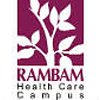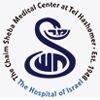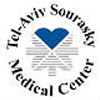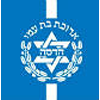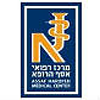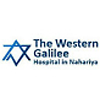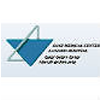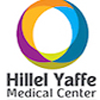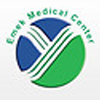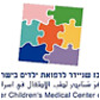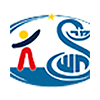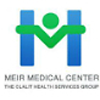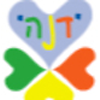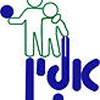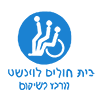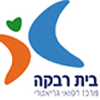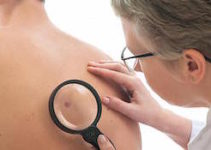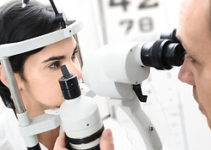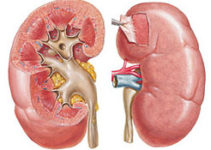
Diseases of the Central and peripheral nervous system in adults often take a long chronic course, significantly degrade the quality of life, concerned about the manifestation of various symptoms and the violation of those or other functions.
Diagnostics
Diseases of the Central and peripheral nervous system in adults often take a long chronic course, significantly degrade the quality of life, concerned about the manifestation of various symptoms and the violation of those or other functions. In children these disorders may affect the physical and intellectual development, learning skills and rules of life in society. Because it is so important for adults and children time to get professional help and adequate treatment of their illness.
For accurate diagnosis only little external examination. Often require complex high-tech research structures of the brain and spinal cord.
In Israeli hospitals for examination of patients can be used:
- a vascular ultrasound and brain structures;
- ultrasound examination of the carotid arteries with Doppler;
- electroencephalography;
- magnetic resonance, positron emission tomography, computed tomography;
- lumbar puncture with the definition of the cellular and biochemical composition of the liquor;
- the MRI.
Treatment
For the treatment of neurological diseases in Israel applies:
- Selection of an adequate system of drug therapy.
- Physiotherapy and balneology procedures.
- Sparing endoscopic surgery of the brain and spinal cord.
- Large intervention to resolve aneurysms, hernias, injuries of the brain and spinal cord.
Important in the treatment of neurological diseases is not only the immediate treatment and full rehabilitation. Undergo a rehabilitation course for a full recovery of damaged functions can go in most clinics in Israel.
Clinics in this area
News and articles of medicine Israel
Training the brain to combat stress
 While there are ways to train the brain to manage stress and other emotional responses, such techniques do not work for everyone and are not always highly accessible. Now, a new study reveals the development of a new tool that could bring self-regulation of brain activity to a much wider audience.
While there are ways to train the brain to manage stress and other emotional responses, such techniques do not work for everyone and are not always highly accessible. Now, a new study reveals the development of a new tool that could bring self-regulation of brain activity to a much wider audience.A clue as to why men sleep better than women
 Are women more likely to have disturbed sleep than men, and if so, why? A new study published in PNAS suggests that being male or female has an impact on how well we are likely to sleep.
Are women more likely to have disturbed sleep than men, and if so, why? A new study published in PNAS suggests that being male or female has an impact on how well we are likely to sleep.Epilepsy drugs work by ‘wedging themselves’ into receptors
 Current epilepsy treatment is not effective for all individuals. A new molecular investigation into the structure of new drug targets promises to help develop safer, more effective medicines for people with seizure disorders.
Current epilepsy treatment is not effective for all individuals. A new molecular investigation into the structure of new drug targets promises to help develop safer, more effective medicines for people with seizure disorders.Remote adjustment implants in the treatment of scoliosis
 Israel will introduce new standards of spinal surgery. This will be possible thanks to innovative implants for arthroplasty, which are regulated without surgery with the help of remote control. This invention from the company Ellipse Technologies already used by European physicians.
Israel will introduce new standards of spinal surgery. This will be possible thanks to innovative implants for arthroplasty, which are regulated without surgery with the help of remote control. This invention from the company Ellipse Technologies already used by European physicians.Neurodegerative diseases and their causes
 Studies of neurodegenerative diseases in recent years began to develop actively in the vastness of Israel. The efforts of the doctors finally saw the breakthrough and they’ve figured out the key to the riddle of the treatment of these diseases.
Studies of neurodegenerative diseases in recent years began to develop actively in the vastness of Israel. The efforts of the doctors finally saw the breakthrough and they’ve figured out the key to the riddle of the treatment of these diseases.Human Embryonic Stem Cells (hESC) and Induced Pluripotent Stem Cells (iPSC)
 Stem cells – this is not fiction, and modern method of treatment to improve the patient’s condition and to change the process of the disease.
Stem cells – this is not fiction, and modern method of treatment to improve the patient’s condition and to change the process of the disease.The predominant method of treatment of trigeminal neuralgia
 In Israel, doctors clinics Suraski (Ichilov) now use the new method of treatment of pain syndrome facial nerves. This applies to the trigeminal nerve.
In Israel, doctors clinics Suraski (Ichilov) now use the new method of treatment of pain syndrome facial nerves. This applies to the trigeminal nerve.Mobile sensors will help to investigate Parkinson’s disease
 Receiving and processing of data on the condition of the person with Parkinson’s disease are now possible through new mobile technologies. Research has engaged the Israeli division of Intel. This is a new stage in the development of methods for the treatment of Parkinson’s disease.
Receiving and processing of data on the condition of the person with Parkinson’s disease are now possible through new mobile technologies. Research has engaged the Israeli division of Intel. This is a new stage in the development of methods for the treatment of Parkinson’s disease.